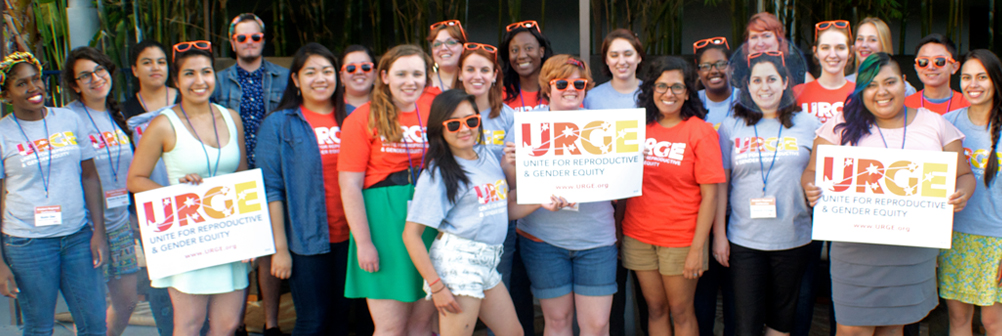Latin@s to Watch Out For: Nancy Cárdenas
As we approach the end of Hispanic Heritage Month, URGE and National Latina Institute for Reproductive Health will be highlighting fierce young Latin@s that are doing amazing social justice work.

Name: Nancy Cárdenas
Organization or Movement: NARAL Pro-Choice Texas Board
Twitter handle: @ncardenastx
Not every Latin@ identifies as “Hispanic”, how do you identify and what is your heritage?
I was born and raised in the Rio Grande Valley. As an RGV native, I carry this identity everywhere. I am extremely proud of my home. Both my parents are Mexican immigrants who share difficult and personal stories of their crossing. I learned English in school and always try to advocate for bilingual options in movements.
I consider myself a Latina feminist. Sometimes using only one label to accurately describe and identify the intersections of complex social equality issues is difficult to lay out with just one label.
Is there a Latin@ leader you look up to, if so who? If not, why not?
I see a leader in many members of my communities. To the organizers who volunteer to be clinic escorts for the only clinic that provided safe and legal abortions in the Rio Grande Valley, to my mother and father who sacrificed so much to be in this country.
I really have to credit Lucy Felix from the National Latina Institute for Reproductive Health Care as a leader in my community. Lucy is an organizer in Brownsville, TX that continuously fights and empowers residents to get involved in reproductive healthcare. Alongside the promotoras, Lucy goes door to door educating residents about reproductive healthcare. Her relentless fight and her passion inspire me to stay involved. In a place like Texas where we take our victories where we can, Lucy manages to drive a lot of us to continue this fight.
What does it mean to be Latin@ in the United States right now?
Being a Latin@ in the United States, means constantly redirecting the mainstream narrative to accurately describe Latino@s living in the United States. Being able to express that we’re not a monolithic group. Breaking misconceptions about who we are, what we’re interested in, what drives us, seems like an everyday thing for me. We still have a long way to go before we enter a room and see other strong Latin@s who are even invited to the conversation.
One one hand we struggle to live in a country that is still hostile to many of our parents, or our parent’s parents, and so on. And another is to work towards the racial inequalities within our own people. To realize that there is still much work to be done in our own community to address issues that need to be brought to the forefront.
As we know, Latin@s are not a monolithic group– we are diverse in a multitude of ways. What other identities/struggles do you identify with and what do you think other Latin@s should be focusing on this next year?
My participation focuses on reproductive healthcare. Mainly, reproductive rights in Texas and the Rio Grande Valley. What many do not realize, is how far reaching reproductive rights affects various aspects of Latino@’s lives. We can discuss how the poverty in the Rio Grande Valley prevents many from accessing critical reproductive healthcare services. We can also talk about how many communities in the Rio Grande Valley lack the basic infrastructure to even attend these appointments. We can also talk about how checkpoints in Texas prevent the undocumented community from accessing these services. Regardless of status, Texans deserve access to a safe and legal abortion. The decision must be theirs, and truly only theirs. Not every story is heartbreaking, and not every story is quite that simple. Another stereotype is that Latin@s would support restrictions towards abortion and that’s just not the case.
The conversation around reproductive healthcare in Texas should certainly not be limited to safe and legal abortions. There are many obstacles that prevent people from becoming mothers or keeping their children safe and healthy. When it comes to mainstream movements, we must remember to include all communities. If we help the voices of marginalized communities, it is then that we can truly help everyone.
What is your vision for the the Latin@ community in the future– how we are seen and treated, how we show up and participate and issues we care about?
My vision for the Latin@ community is to keep fighting and to break the harmful stereotypes that surround us. I’ve been to plenty of conferences where people refuse to see young Latin@s as leaders in movements. My vision for the Latin@ community is to be more inclusive with our language and with people within our own circles that are consistently left out of the conversation.
I encourage Latin@s to empower themselves and always keep your head up high. Take ownership of your heritage. Take ownership of your culture. Never be afraid to speak for the people in your community.

